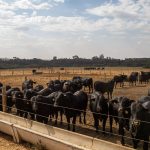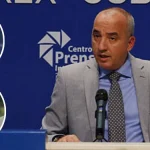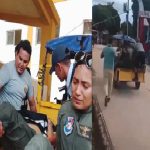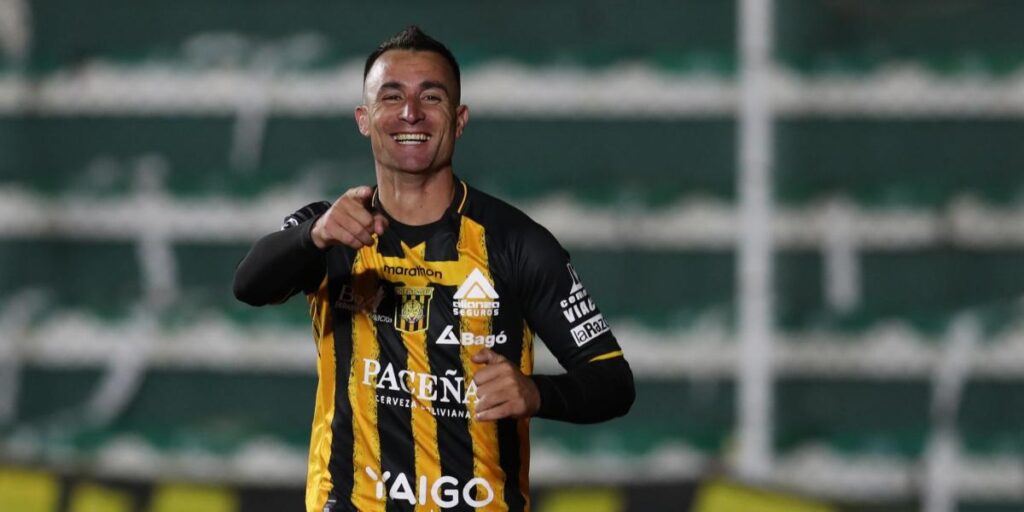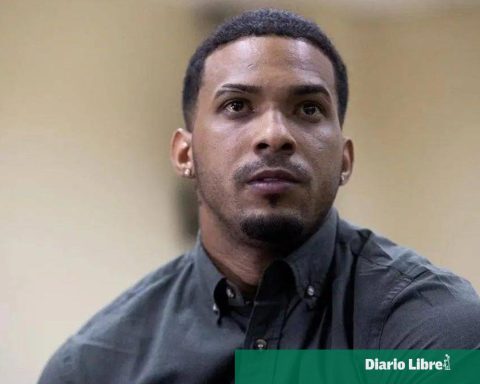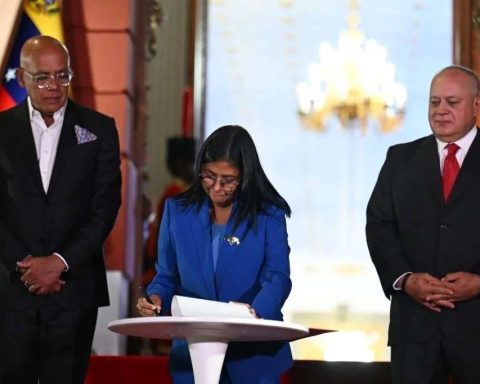Carlos de Pena would train in the morning on Thursday, but around four in the morning the bombings began in Kiev, the capital of Ukraine, where the footballer had been three years. “On Wednesday everything was fine”, and on Saturday he had a game (Dinamo Kiev), and those hours full of uncertainty became decisive.
A BBC journalist with experience in war coverage urged them to take the nearest train to the border. “This is turning into Afghanistan, this will burn tomorrow. They have to get out”, was the spirit of that conversation of hardships. Fifteen minutes later De Pena was already leaving with a group of Brazilians in six cars, towards the train station that would help them cross the border into Romania.
Before, the 42 Brazilians and the two Uruguayans – De Pena traveled with Bruno Moscovich – had to pass through Moldova, and that journey would take 17 hours. By then, the soccer player’s family in Uruguay already knew about that way out of trouble. “I’m leaving, I’m leaving, then I’ll explain everything to you.” In that tone he transmitted it to his wife, Elisa Vilaseca. With her, De Pena had agreed to turn on his cell phone and send a message every hour, to let him know that everything would be fine.
In Uruguay, the family of De Pena and Moscovich suspended several activities, and postponed family enjoyment, to follow minute by minute what was happening in the old continent with the war. Both Uruguayans were in the middle of the war and everyone did not know if they could leave.
It was already Saturday at noon in Uruguay. De Pena and those who went there were at greater risk because they were outside the bunker. He had already asked his family to start praying, and to do so during those 17 hours it would take them to cross the border. The family was clear that at the moment nothing had happened on any train, but the situation was tense. Dozens of people packed into stations, several unable to leave the country. If you want to get on board.
“Whatever comes in the future is sure to be good, because what I had to live through was already an ordeal,” said De Pena this Tuesday when he arrived at Carrasco Airport around 5:20 p.m. It was a trip from Romania, with a stopover in São Paulo.
Some 15 members of his family were waiting for him in their arms, with cell phones in hand and longing to see him again, after the odyssey.
Tranquility, family and friends, De Pena used to say to journalists, and sometimes he became repetitive, but to make it clear what he wanted after setting foot on Uruguayan soil. Vilaseca and his son Juan Cruz, one year old, were the ones who received the hug. Then his parents. The four shared the same WhatsApp group since Thursday where they communicated with him on a daily basis.
“I’m here” was the last message. The plane was already in Uruguay and I would see them a few minutes later.
Minutes before 6:00 p.m., he was reunited with his relatives.
Leonardo Carreno
Relatives of De Pena await the arrival of the footballer
Rosina Bonino, the soccer player’s mother, said while waiting for him at the airport: “It’s really a day of glory. I always thought that wars happened to other people in other places, but it couldn’t happen to my son. I couldn’t lose my son in a war. (…) I never stop praying before falling asleep for peace in the world”. She said she felt terrified, helpless and “very afraid” during these days, because of what would happen to his only son.
No return
“I’m never coming back, never again,” De Pena made clear this Tuesday at Carrasco Airport. And he explained: “There is an employment contract involved but I am not going to come back anymore. I left all my things there, I’m not going to look for them. I don’t want them, I don’t need them either. What I need, far from the material, is to be with my family and my friends; And there’s no way I’m going back to Ukraine.”
“I thought many times that maybe I was not going to get out of there. It’s a feeling I’ve never felt before,” said the footballer.
Vilaseca, for his part, added: “We were about to leave all the time (to live in the Ukraine) and we could never leave, thank God.”
Contacts with Uruguay
De Pena said that he communicated with President Luis Lacalle Pou. “He called Me personally. The president expressed his support to me at all times, that he could call him at any time of the day. His messages, his calls gave me a lot of peace of mind. Maybe in the next few days I’ll give her a hug,” he added.
The Vice Chancellor of the Republic, Carolina Ache, was at the airport for the arrival of the two Uruguayans. Moscovich’s father joined in the thanks to those who made it possible for both of them to be safe in Uruguay. “We wanted our son to come back and nothing more,” Tedy Moscovich limited himself to saying to The Observer.
Moscovich was waiting for his son along with his wife and their other daughter. The three waited away from the press, in the Arrivals area of the airport.






